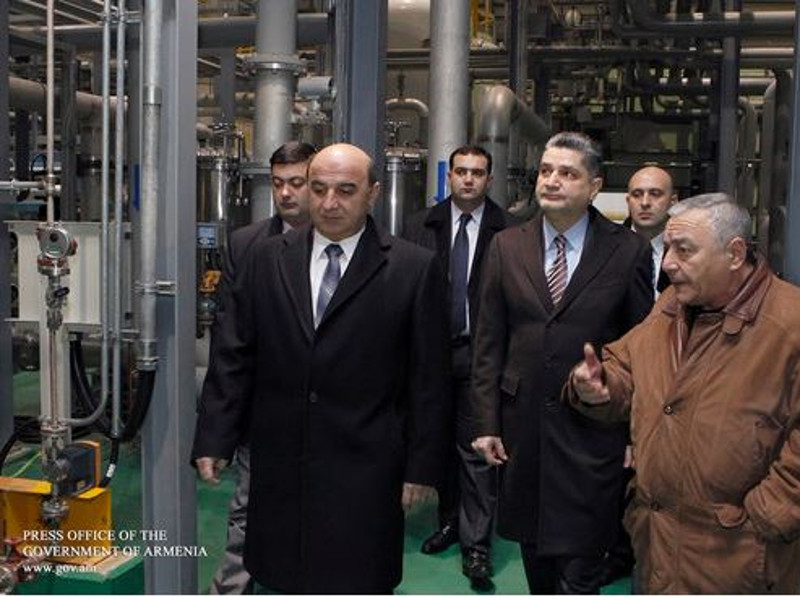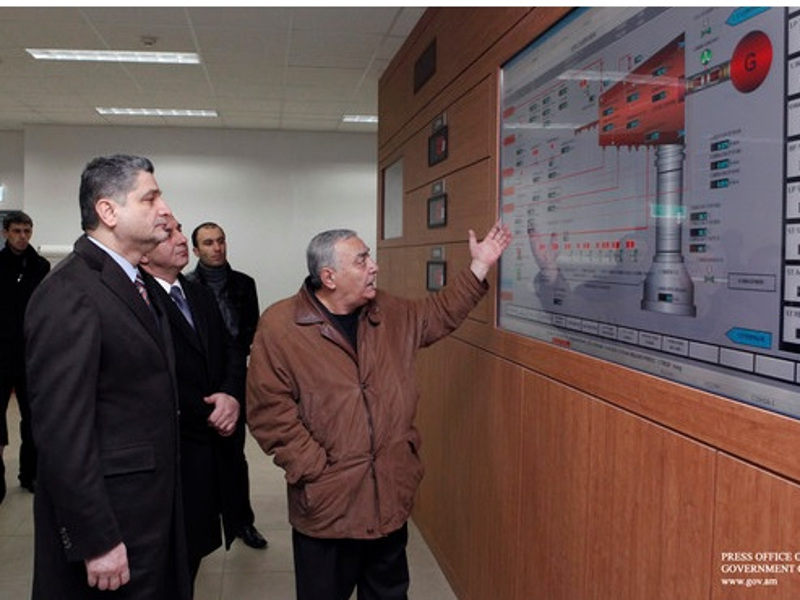Yerevan-2 is a 250MW combined-cycle power project being developed adjacent to the existing Yerevan-1 power plant located 10km south of Yerevan, Armenia. It will be the first project-financed independent power plant in Armenia.
The new plant will be developed and operated for a period of 25 years by ArmPower, a special-purpose company comprising two Italian companies Renco and Simest (60%), and Siemens Project Ventures (40%).
Scheduled for commissioning in 2021, the Yerevan-2 combined-cycle power plant is expected to produce 2,000GWh of electricity a year.
It is also anticipated to generate up to 1,200 employment opportunities during construction and up to 230 jobs during operations.
Project Gallery
-

Yerevan-2 is the first greenfield project-financed fossil power project in Armenia. Image courtesy of The Government of the Republic of Armenia.
-

The combined-cycle gas-fired power plant will be equipped with a SGT5-2000E gas turbine from Siemens. Image courtesy of www.siemens.com/press.
-

The plant is being developed by ArmPower CJSC and is expected to produce first power by mid-2021. Image courtesy of The Government of the Republic of Armenia.
Yerevan-2 power project background
The site hositng the project earlier housed the 550MW Yerevan thermal power plant, a seven-unit thermal plant using both natural gas and oil as fuel since 1963.
The old plant was decommissioned, upon the inauguration of the 271MW Yerevan-1 combined-cycle co-generation power plant in 2010. The Yerevan-1 plant was constructed by a consortium of Mitsui and GS Engineering and Construction, between 2007 and 2010.
ArmPower signed a land purchase agreement with the Yerevan Thermal Power Plant in March 2017 and received environmental approval for the project from the Ministry of Nature Protection, Armenia in July 2017.
Yerevan-2 combined-cycle power plant make-up
The 250MW combined-cycle power plant will be equipped with an SGT5-2000E gas turbine, an SST-600 steam turbine, two SGen-100A generators, and a heat recovery steam generator (HRSG) from Siemens.
The plant will be fitted with low nitrogen oxide burner and a 66m-high flue stack to control emissions.
Other facilities of the plant will include a water-based cooling system, an auxiliary boiler unit, an emergency diesel generator, fuel gas supply system, as well as demineralised water and waste water treatment facilities.
Yerevan-2 turbine details
Designed for 50Hz power generation, the SGT5-2000E gas turbine offers a net combined-cycle efficiency of more than 36.5%. The 3,000rpm turbine is capable of operating at a heat rate of 9,863kJ/kWh.
The SST-600 steam turbine is designed to operate at an inlet steam pressure and temperature of 2,395psi and 565°C, respectively.
Power transmission
The Yerevan-2 electricity output will be fed into the national grid through a 400m-long underground transmission line connecting a new 220kV substation near the project site.
Gas and water supply
Yerevan-2 will receive gas supply through a new 1.5km-long pipeline connection to the natural gas supply pipeline system operated by Gazprom Armenia, which will also be responsible for the construction of the pipeline.
Water supply will be facilitated through a new 1km-long water pipeline connecting the Veolia-operated city water system, as well as through connections to Yerevan’s water sewerage and discharge system.
Financing details
The International Finance Corporation (IFC) and the Multilateral Investment Guarantee Agency (MIGA) of the World Bank provide £153m ($202m) of debt finance and guarantee package for the Yerevan-2 gas-fired power project.
IFC, the lead arranger, provides £123m ($163m) of loans, while MIGA has agreed to issue £30m ($39.2m) of guarantees to cover Renco’s equity investment in the project.
The Asian Development Bank (ADB) also approved £50m ($68.4m) loan under a financinge agreement with ArmPower for providing a loan of $68.4m for the Yerevan-2 combined-cycle project in April 2018.
Contractors involved
Renco, one of the co-owners of the project, is the general contractor and is responsible for the engineering, procurement, and construction (EPC) of the Yerevan-2 power plant.
Siemens, another development partner for the project, is responsible for the supply of main equipment of the power island, including the gas and steam turbines, generators, as well as the HRSG. It will also provide operation and maintenance services for 20 years.
Fichtner was engaged in preparing the environmental and social impact assessment (ESIA) report for the project in 2018. Other consultants engaged in the early development stage of the project included Ecobarik-Audit, Geoterproject, and Consecoard.
